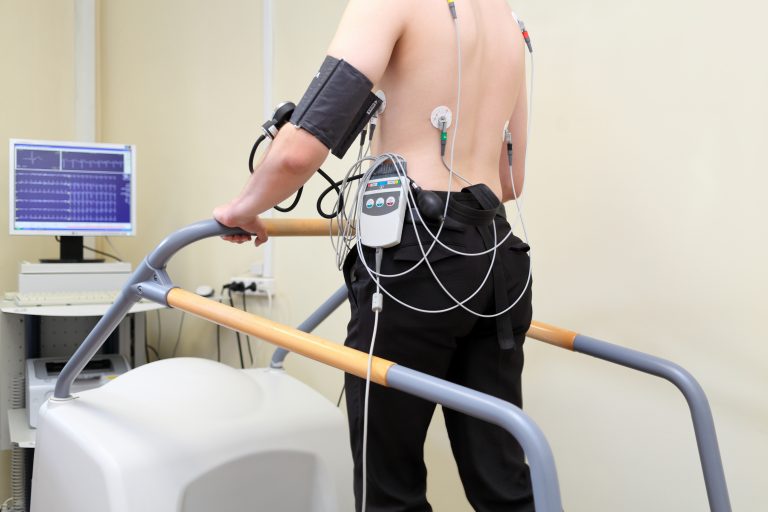
Electrocardiogram(ECG) & Treadmill Test(TMT)
At Apex Heart Hospital, accurate and early diagnosis is the foundation of effective heart care. Two of the most essential, non-invasive cardiac diagnostic tools we use are the Electrocardiogram (ECG) and the Treadmill Test (TMT). These tests help evaluate heart rhythm, detect heart diseases, and assess how the heart responds to physical stress.
What is an ECG (Electrocardiogram)?
An ECG is a quick, painless test that measures the electrical activity of the heart. Every time the heart beats, it produces electrical signals that trigger contraction. These signals can be captured using electrodes placed on the skin of the chest, arms, and legs.
Purpose of ECG:
- Detect abnormal heart rhythms (arrhythmias)
- Identify previous or current heart attacks
- Assess the effects of medications or pacemakers
- Monitor heart conditions like cardiomyopathy or electrolyte imbalances
How It’s Done:
- The patient lies flat, and 10 electrodes are placed on the body.
- The machine records the electrical activity in the form of waves.
- The process takes only 5–10 minutes and causes no discomfort.
- An ECG is often the first step in heart disease diagnosis and is used routinely in emergency and outpatient settings.
What is TMT (Treadmill Test)?
Also known as a Cardiac Stress Test or Exercise ECG, TMT is used to evaluate the heart’s performance during physical activity. Since many heart problems only appear during exertion, this test helps unmask hidden coronary artery disease.
Purpose of TMT:
- Diagnose coronary artery disease (CAD)
- Evaluate symptoms like chest pain, shortness of breath, or fatigue
- Assess heart function after a heart attack or surgery
- Determine exercise tolerance and fitness levels
- Monitor treatment effectiveness
How TMT is Performed:
- The patient walks on a treadmill while connected to ECG leads.
- The speed and incline gradually increase in stages (usually every 3 minutes).
Blood pressure, heart rate, and ECG are continuously monitored. - The test continues until the patient reaches a target heart rate, experiences symptoms, or the doctor stops the test for safety reasons.
- The duration is usually 15–30 minutes, followed by a short recovery period.
- A positive TMT may indicate reduced blood supply to the heart during exercise and may require further tests like echocardiography, angiography, or CT coronary scan.
Safety and Preparation
Both ECG and TMT are safe and non-invasive tests. For TMT, the patient should:
- Wear comfortable clothes and shoes
- Avoid heavy meals before the test
- Inform the doctor about any medications or health conditions
- Our trained cardiac technicians and doctors ensure all procedures are conducted with maximum safety and accuracy.
Why Choose Apex Heart Hospital for ECG & TMT?
- Advanced, calibrated diagnostic equipment
- NABH-standard protocol and hygiene
- Real-time analysis by expert cardiologists
- Fast reporting and guidance for next steps
- Integrated diagnostic and treatment planning under one roof
Your First Step Toward a Healthy Heart
-
Whether you're having symptoms or just seeking peace of mind, an ECG and TMT can reveal vital insights about your heart health. At Apex Heart Hospital, we are committed to early detection, precise diagnosis, and compassionate cardiac care for every patient.
Let us help you take proactive steps for a healthier heart.


